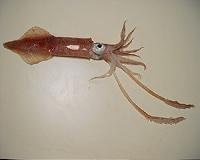 |
Nagoya, Japan (AFP) Oct 27, 2010 Japan will provide two billion dollars over three years to help developing countries save their ecosystems, Prime Minister Naoto Kan announced at a UN biodiversity summit on Wednesday. "We will launch a 'life in harmony initiative' to support developing countries' efforts to compile and update their national strategies and implement them," Kan said. "We will provide assistance in the amount of two billion US dollars over three years from 2010." Kan was addressing delegates from more than 190 countries who are in the central Japanese city of Nagoya to map out a strategy to save the world's plant and animal species from extinction. The 12-day event is due to end on Friday with the UN aiming for a 10-year strategy that would set targets for protecting ecosystems and ending the loss of biodiversity that scientists say is threatening humans' lives. Developing countries have insisted throughout the summit that, for a deal to be reached, rich nations must commit to financially helping them save their rainforests, waterways and other ecosystems. The financing issue has been one of the major differences between rich and poor nations that threaten a meaningful deal being reached by Friday. With environment ministers joining the negotiations on Wednesday to try to finalise a deal, Kan urged all countries to work harder to resolve their disputes. "I would like to ask for enhanced efforts from representatives of each country," he said. "(And) when the post-2010 targets are agreed upon, Japan is prepared to lead the world in achieving them." Kan also proposed that the next 10 years be recognised by the United Nations as a "decade of biodiversity".
Share This Article With Planet Earth
Related Links Darwin Today At TerraDaily.com
 Squid Studies Provide Valuable Insights Into Hearing Mechanisms
Squid Studies Provide Valuable Insights Into Hearing MechanismsFalmouth MA (SPX) Oct 27, 2010 The ordinary squid, Loligo pealii - best known until now as a kind of floating buffet for just about any fish in the sea - may be on the verge of becoming a scientific superstar, providing clues about the origin and evolution of the sense of hearing. In a hangar-like research building at the Woods Hole Oceanographic Institution (WHOI), biologist T. Aran Mooney is exploring virtually unchar ... read more |
|
| The content herein, unless otherwise known to be public domain, are Copyright 1995-2010 - SpaceDaily. AFP and UPI Wire Stories are copyright Agence France-Presse and United Press International. ESA Portal Reports are copyright European Space Agency. All NASA sourced material is public domain. Additional copyrights may apply in whole or part to other bona fide parties. Advertising does not imply endorsement,agreement or approval of any opinions, statements or information provided by SpaceDaily on any Web page published or hosted by SpaceDaily. Privacy Statement |